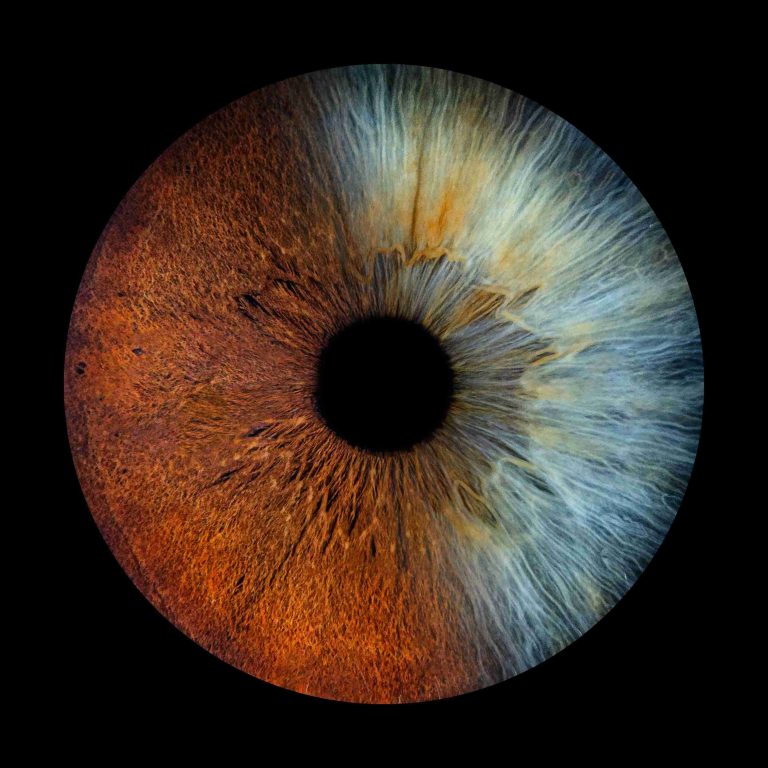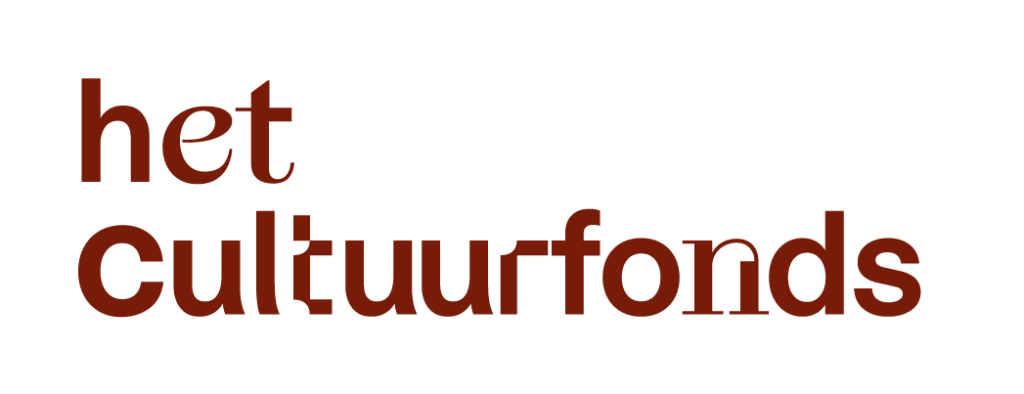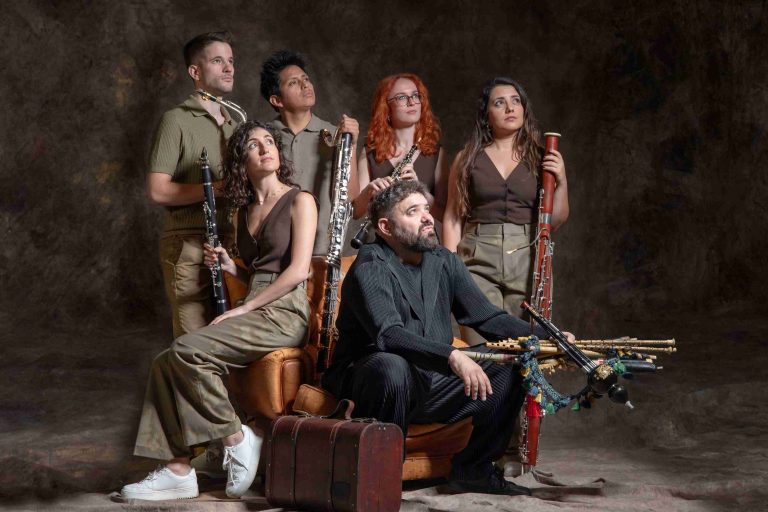Our projects
DNA
For this project, the five musicians of Dianto Reed Quintet took part in DNA testing to explore their origins and discover which (new) families they belong to. The results were full of surprises: our predominantly Spanish quintet (with one member from South America) turned out to have roots stretching from Greece to Scandinavia and from Mexico to the Balkans.
Throughout history, people and cultures have travelled across the world, settling in distant lands and weaving a timeless story of migration, conflict and coexistence. This story is written in our DNA — the hereditary material that connects us to our ancestors. DNA knows no language, religion or borders. It carries an indelible trace of where we come from, and forms one of the keys to who we are.
This performance offers a musical portrait of the rich diversity within the group’s DNA — and within each of its musicians — while standing as a heartfelt tribute to global citizenship.
Jean Sibelius (1865-1957). Finlandia, Op.26. Arr. Max Knigge.
Helen Hopekirk (1856-1945). Romance in A minor. Arr. Raaf Hekkema.
Ramin Amin Tafreshi (1992). Echoes of the Buried Lullaby (2025)*
Tradicional. Freilich. Arr. Max Knigge.
Antonio Vivaldi (1678-1741). Concerto “La Notte”. Arr. Hugo Bouma.
– Allegro
Gaeth Almaghoot (1993). Klmlik. Arr. Max Knigge.
Rodolfo Halffter (1900-1987). 8 Tientos. Arr. Michele Mazzini.
– V
– VII
Lili Boulanger (1893-1918). Nocturne. Arr. Annemarie Hensens.
Fuensanta Méndez (1995). Tren de los desconocidos (2025)*
– La Bestia
– Los Viajeros
– Las Patronas
Nikos Skalkottas (1904-1949). 4 Greek Dances. Arr Dimitris Andrikopoulos.
– Peloponnisiakos
– Kleftikos
Avelino Cachafeiro (1899-1972). Muiñeira de Chantada. Arr. Max Knigge.
*World Premiere




Echoes of Our Planet
Echoes of Our Planet is a program in which distant past and present meet. We take the audience to worlds and times that are far away from us, with the music of our ancestors and the instruments of Abraham Cupeiro, while maintaining the connection with the present and our modern instruments. In doing so, we go much further back than the Reinassance or the Middle Ages; we go back to the origin of our culture, being music a universal element that has played a central role across time, cultures and continents.
Pangea (Greek for ‘the whole Earth’) refers to the presumed original supercontinent of about 300 million years ago. In his composition, Cupeiro investigates different ‘primitive’ forms of musical expression by using instruments he built himself, such as Karnyx (more than 2 meters long), Shofar and Hulusi, among others. His instrumentation is very extensive and diverse, and reflects the different continents where he found his inspiration. Pangea is an acoustic historical investigation into the musical ecosystem of our distant ancestors.
Pangea (2018), by Abraham Cupeiro (1980). Arr. by Max Knigge – for Dianto Reed Quintet & Abraham Cupeiro. (43’)
– Oceanía
– China
– América
– África
– Norte de África (Arabia)
– Armenia
– Bulgaria
– Costa Atlántica
– Lamento
Fantasia and Jhalla (2025), by Arjan Linker (2000) – for Dianto Reed Quintet. (9’) *
– Fantasia
– Jhalla
*Fantasia and Jhalla will be played in between movements of Pangea.


Pour la Postérité
‘Pour la Postérité’ connects two disciplines, music and visual arts, through the close bond between two artistic giants of the last century: Igor Stravinsky and Pablo Picasso. They were both active in the Parisian circles surrounding ‘Les Ballets Russes’, the company of the visionary impresario Sergei Diaghilev, as well as the other composers of this program: Eric Satie and Manuel de Falla.
The three composers worked with Picasso in their respective pieces presented in this project, and they were also portrayed by him. Stravinsky, in return, wrote a short solo for clarinet (‘Pour Picasso’) and he dedicated these five bars to the painter, writing down ‘Pour la Postérité’. ‘Pour Picasso’ is the leitmotif of the program, and it was also the inspiration for the new commissioned piece for this project by Julian Schneemann: ‘Song, Fugue and Groove on a Tune by Stravinsky’.
All these giants of the last century were innovative and revolutionized the art in different ways. With this performance Dianto doesn’t only show the synergy between these artists, but also its own desire to be innovative and be open to the developments of the world of today. They want to invite the listener to reflect about art and its purpose, by showing some Picasso paintings during the performance from different perspectives, as well as some Picasso inspired paintings (by the Dutch artist, Erik Renssen), and some Artificial Intelligence creations, opening the door to many questions and reflections.
Igor Stravinsky (1882-1971): Pour Picasso (1917).
Igor Stravinsky (1882-1971): Pulcinella Suite (1920). Arr. Max Knigge.
– Sinfonia
– Serenata
– Scherzino
– Toccata
– Vivo
– Minuetto
– Finale
Erik Satie (1866-1925): Parade (1917). Arr. Max Knigge.
Manuel de Falla (1876-1946): El sombrero de tres picos: Suites n.1 and n.2. (1919). Arr. Arjan Linker.
Julian Schneemann (1992): Song, Fugue and Groove on a tune by Stravinsky (2023).


Avrotros Klassiek Presenteert...
Debut CD
Erik, Ovidi, María, María and María initially studied at various Spanish conservatories, but met a few years ago in Amsterdam, at the conservatory where they recently completed their master’s degree. The quintet likes to step out from the traditional chamber music concert and surprises the audience with their unique way of playing together (everything by heart!) and adding choreography.
They present “Identidades: la magia del Duende” as the chosen program of their debut CD.

Identidades: La magia del Duende
‘Identidades: La magia del Duende’ is a program based on Spanish music, in which Dianto invites the audience to find and feel the ‘Duende’.
‘Duende’ is a concept that cannot be defined. It is not something tangible or meant to be put in words, but something that people can feel and experience. It is commonly associated to Spanish art, and it reflects the magic that naturally emerges during a performance. ‘Duende’ is a concept that goes beyond reason, which appeals directly to the emotions that the artist recalls in the audience while performing.
Identidades’ main aim is to bring the ‘Duende’ to each show. The music goes from the Spanish Renaissance to the Nationalism of the 20th Century, presenting not only the most popular folklore from this country, but also interesting Spanish music not that often performed. The only non-Spanish piece of the program is the one written by Primo Ish- Hurwitz. It is based on ‘El Amor Brujo’ and leads the whole program to this final piece.
‘Identidades’ is not only a musical program, but a performance in the full sense of the word. It is presented combining music with a concrete scenography, and fragments of a conference given by Federico García Lorca in 1933 called ‘Teoría y Juego del Duende’, in which he developed his own perception of ‘Duende’.
It can be said that ‘Identidades’ is successful if, and only if, the musicians and the audience can feel the ‘Duende’ during the show.
Primo Ish- Hurwitz, 2001. 3 Preludes to El Amor Brujo. (2022).
– I
Isaac Albéniz, 1860-1909. Suite Española Op.47. (1886). Arr. Hugo Bouma
– Asturias
– Granada
– Sevilla
– Castilla
Enrique Granados, 1867-1916. Doce danzas españolas. (1892). Arr. Arjan Linker.
– Oriental
Primo Ish- Hurwitz, 2001. 3 Preludes to El Amor Brujo. (2022).
– II
Canción tradicional. El Cant del Ocells. Arr. Arjan Linker.
Amadeo Vives, 1871-1932. Doña Francisquita (1923). Arr. Hugo Bouma.
– Fandango
Tomás Luis de Victoria, 1548-1611. Jesu dulcis memoria. Arr. Dianto Reed Quintet.
Manuel de Falla, 1876-1946. La vida breve. (1905). Arr. Arjan Linker.
– Danza Española
Xoán Montes Capón, 1840-1899. Negra sombra. (1892). Arr. Max Knigge.
Primo Ish- Hurwitz, 2001. 3 Preludes to El Amor Brujo. (2022).
– III
Manuel de Falla, 1876-1946. Amor brujo. (1915). Arr. Hugo Bouma.

A la fresca
With the collaboration of Muziekzomer Gelderland, Dianto Reed Quintet presents a unique program inspired by Latin and Spanish roots. They also collaborate in this project with the percussion player Mateo Montes (Colombia), and the dancer Clotilde Cappelletti (Italy).
‘A la Fresca’ is a typical Spanish expression referring to summer evenings, when the elders of the village sit outside their homes, discussing life with neighbors and friends. ‘Pasodoble’ is danced, and the most delicious Spanish dishes are shared—it’s a celebration of life and seeking happiness every day. Expect warm summer sounds and an energetic program featuring Spanish and South American composers and dances!
Manuel de Falla, 1876-1946. Amor brujo. (1915). Arr. by Hugo Bouma.
Reveriano Soutullo, 1880-1932. La leyenda del beso (1924).
– Intermedio.
Amadeo Vives, 1871-1932. Doña Francisquita (1923).
– Fandango.
Manuel de Falla, 1876-1946. Siete canciones populares españolas (1914).
– Nana
Manuel de Falla, 1876-1946. La vida breve (1905). Arr. by Arjan Linker.
– Danza española.
Arturo Marquez, 1950. Danzón No. 2 (1994). Arr. by Hugo Bouma.
Heitor Villa-Lobos, 1887-1959. Bachianas Brasileiras (1938).
Astor Piazolla, 1921-1992. Escualo.
Papaya Dada, Cumbia Chonera.

All about contrast
Dianto presents a concert full of energy and contrasting elements. They mix different styles and periods, while the movements of the pieces are combined with each other to surprise the audience and give a fresh approach to it.
It includes a choreographed performance, which helps to create a deeper interaction between the listeners and the musicians.
Jean-Philippe Rameau, 1683-1764. Suite la Triomphante (1727). Arr by Raaf Hekkema.
– Prélude.
– Allemande
– Gavotte
Ton ter Doest, 1964. Circusmuziek (1990).
– I
– II
– III
– IV
– V
– VI
– VII
Robert Schumann, 1810-1856. Waldszenen Op. 82 (1848). Arr. by Raaf Hekkema.
– Eintritt
– Jäger auf der Lauer
– Einsame Blumen
– Verrufende Stelle
– Freundliche Landschaft
– Herberge
– Vogels als Prophet
– Abschied
Julio Medaglia, 1938. Suite “Belle-Époque in Sud-America”. Arr. by Dianto Reed Quintet.
– El Porsche Negro
– Vals Paulista
– Requinta Maluca
Paquito D’Rivera, 1948. Aires Tropicales (1994). Arr. by Dianto Reed Quintet.
– Alborada
– Son
– Vals Venezolano
J. S. Bach, 1685-1750. Chaconne from Partita II for violin BWV 1004. (1717-1720). Arr. Jelte Althuis.

“In the first instance, it’s all about musicality and whether there is a strong concept underlying the performance. At the end of the day, it’s about who is the most unique and irreplaceable.”
